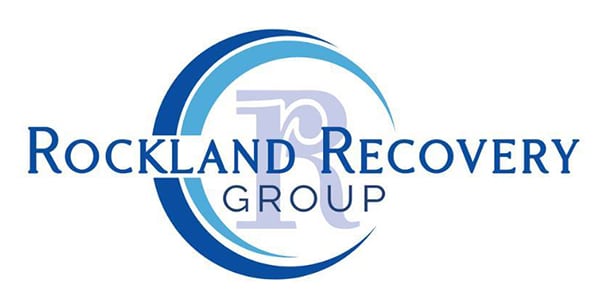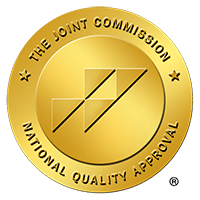Post-traumatic stress disorder is an often debilitating mental health condition that can have a profound effect on a person’s mental and physical health. Without appropriate treatment, PTSD can cause a state of chronic anxiety, depression, and emotional distress.
In severe cases, it can also lead to thoughts of self-harm. Effective treatment is critical, and at Rockland Recovery, we offer multiple options and are here to help you find the best treatment for PTSD for your mental health needs.
Jump to Section
Why Is Trauma Therapy So Hard?
A challenge that almost everyone experiences with trauma therapy is the difficulty of thinking and talking about traumatic events. PTSD isn’t a condition that medication alone can remedy. Therapy is critical for healing. It involves facing the trauma directly to move forward in your healing journey.
Trauma can feel very personal, and it’s an extremely vulnerable situation to share that with someone. Trauma can leave a person feeling overwhelmed and powerless, leaving the traumatic experiences imprinted in their psyche. There is often a concern that engaging with memories or feelings around the trauma will bring forth emotional distress.
In order for trauma therapy to be successful, it’s important that trust and safety between the individual and therapist be built. This takes time and patience, and can also cause one to feel that their treatment isn’t progressing quickly enough.
Experienced PTSD therapists are skilled in establishing this trust, helping the individual feel safe, and slowly helping the person face and release the pain of trauma. Evidence-based PTSD therapies are at the core of this approach, and there are options available to meet the diverse needs of PTSD patients.
If you’re considering treatment for PTSD but aren’t sure where to begin. The Substance Abuse and Mental Health Services Administration (SAMHSA) website offers many mental health resources, including a 24-hour National Helpline.
The Importance of Evidence-Based PTSD Therapies
There are various approaches to treating PTSD, however they are not all equally effective for each person. A person struggling with PTSD might search for ways to address the symptoms of their trauma on their own. Still, it’s important to acknowledge the importance of evidence-based therapies and working with an experienced mental health professional.
Evidence-based therapies are backed by rigorous, stringent studies that demonstrate not only effectiveness but also that they don’t inadvertently cause more harm. Research on these therapies has ensured that best practices are used and that there is an understanding of when to use each for best results.
PTSD is a mental health condition that can’t be neatly packed into a box, but there are multiple evidence-based therapies so that an individualized approach to treatment can be used.
Comprehensive PTSD Treatment Options
When it comes to treating PTSD, a multifaceted approach is often the most effective. At Rockland Recovery, we offer a variety of evidence-based therapies tailored to meet the unique needs of each individual.
Trauma-Focused Cognitive Behavioral Therapy
Cognitive behavioral therapy (CBT) is often the first line of treatment for PTSD. It’s a therapeutic approach that can be adapted in a way that is trauma-focused, offering the most benefit for those living with PTSD. Trauma-focused CBT helps PTSD patients understand and work toward healing their thoughts and behaviors that are related to their traumatic experiences.
Trauma-focused cognitive behavioral therapy teaches and encourages cognitive restructuring. The goal is to process trauma in a healthy way, rather than through avoidance and hyperarousal around triggers.
Cognitive Processing Therapy
Cognitive Processing Therapy (CPT) focuses on interpreting and processing traumatic experiences. With PTSD, there is a tendency toward harmful beliefs related to the trauma, and changing these thought patterns is essential to healing. Through CPT, a more balanced view of the trauma and its present threat is developed. This can help reduce intrusive thoughts and avoidance habits with PTSD.
Prolonged Exposure Therapy
Avoidance is a common symptom of PTSD. When someone has experienced trauma, it’s a natural response to want to avoid any place, situation, or person that is a reminder of the traumatic experience. However, continual avoidance is a hindrance to healing.
Prolonged exposure therapy helps individuals face these fears by confronting elements of their trauma in a safe, supportive space. Through repeated exposure, the reaction to trauma changes. With PE therapy, avoidance, stress, fear, and anxiety are lessened.
Eye Movement Desensitization and Reprocessing (EMDR)
EMDR therapy was developed in the late 1980s when a doctor named Francine Shapiro realized that certain eye movements had a desensitizing effect on memories that had caused her distress. Two years later, the first studies on EMDR were published and it has been gaining respect for the treatment of PTSD ever since.
With EMDR, bilateral sensory input, primarily side-to-side eye movements, is used to help process traumatic memories. During each session, the patient will recall memories of their traumatic experience, while focusing on guided eye movement. With each session, the patient can feel a reduction in the emotional impact of the trauma.
Mindfulness and Holistic Therapies
A goal in healing from PTSD is focusing on the present with a realistic perspective of how the trauma affects them now, rather than in the past. Mindfulness-based therapies can be highly effective in helping PTSD patients stay focused on the present moment while acknowledging their feelings without placing harsh judgment on themselves.
There are also other types of holistic therapies that can help reduce the impact of traumatic experiences. An experienced mental health professional can work with each patient to develop a treatment plan that includes gentle, holistic therapies that are most aligned with their treatment goals.
Choosing the Best PTSD Treatment Center in Massachusetts
Evidence-based treatments for PTSD are the path forward to healing. If you or someone you care about is living with the emotional aftermath of trauma, we want to encourage you to reach out to Rockland Recovery to learn more about our approach to PTSD treatment.
There is a range of therapies and approaches that effectively treat PTSD, and we’re available to discuss the options with you. Contact Rockland Recovery at 888-299-4833 for a consultation today.






